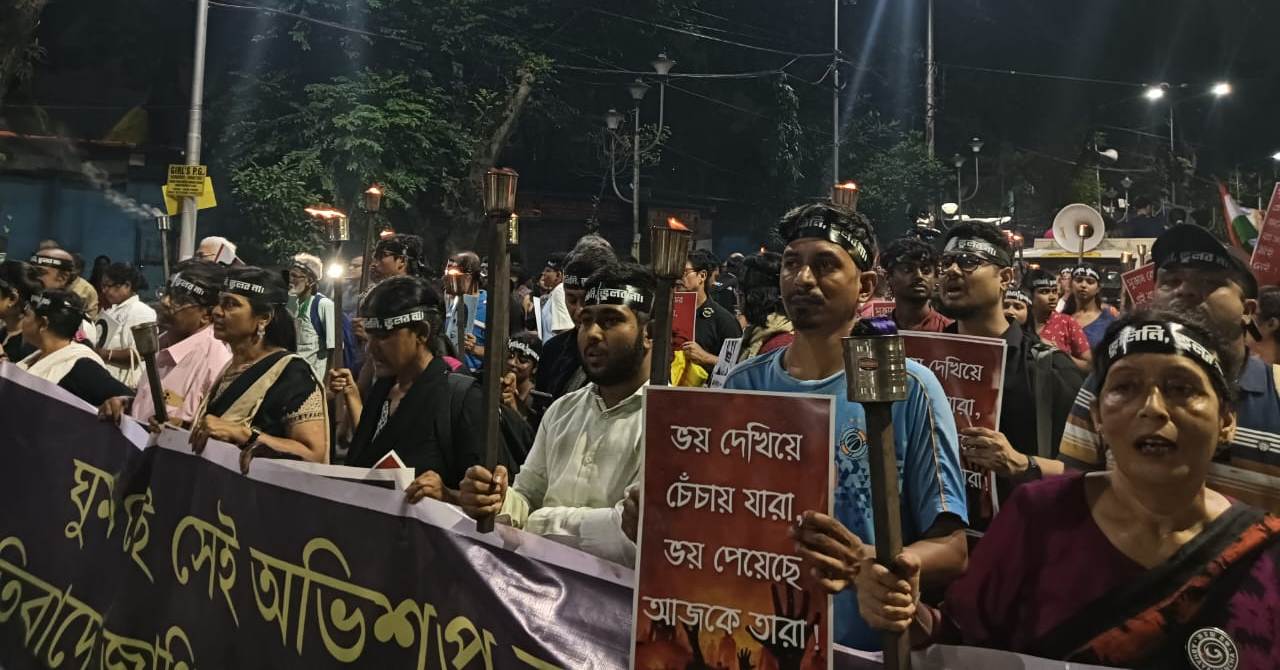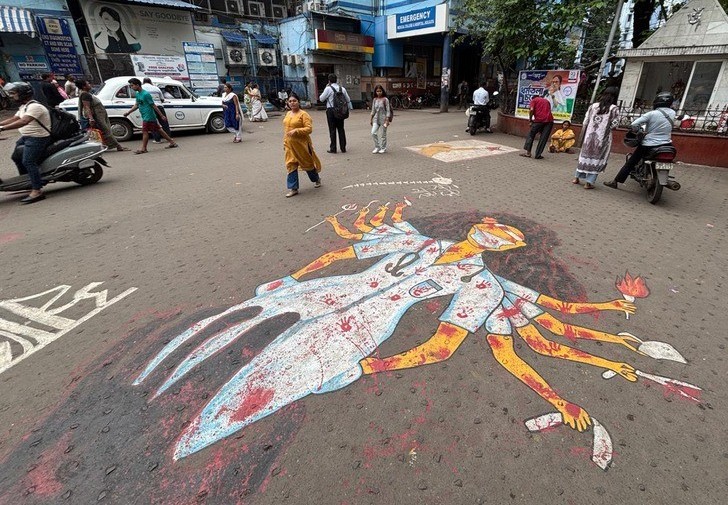
Night vigils across Kolkata and a march to the West Bengal state secretariat Nabanna have taken place between Friday and Saturday, as the infamous and unbelievably brutal RG Kar rape-murder case completes a year.
Media reports have quoted the rape-murder victim’s parents as saying that they were assaulted by police personnel while participating in the march to Nabanna, aka “Nabanna Abhiyan”, on Saturday.
India Blooms News Service quoted the bereaved mother as saying, “I have been beaten up on the road. My shankha bangles have been broken. I have been hit on the forehead. I want to march to Nabanna demanding an answer for why my daughter was killed on duty.” Shankha (conch shell) bangles are worn by wives in some regions of India, and they are not broken until and unless the husbands have passed away.
Video footage of Nabanna Abhiyan shows Kolkata Police trying to stop the marchers by positioning high metal barricades along the marchers’ route and police personnel in riot gear waving truncheons and ramming into the crowd of protesters.
To thwart the marchers from reaching Nabanna, which is located in the sister city of Howrah, across the river Hooghly from Kolkata, there has been a huge deployment of police personnel on Saturday. Various entry points to Howrah have been blocked as the police have tightened security in and around Nabanna.
A similar Nabanna Abhiyan in protest against the RG Kar rape-murder had been organised last year, too, and it was stopped by the police using barricades, batons, and water cannons.
Unfulfilled demand for justice; pent-up fury
The rape and murder of the junior doctor nicknamed “Abhaya” inside the state-run RG Kar Medical College and Hospital — she was resting at night after a very long shift, and her lifeless body was discovered the next morning — had sent shockwaves around the eastern Indian state of West Bengal on August 9, 2024.
It had triggered unprecedented protests — with junior doctors at the forefront and civil society in support — for months on end. Protests were also held at many places around India and even around the world, making this one of the landmark criminal cases in the country.
Cries of “We want justice” had been heard in every corner of Kolkata, in nearby smaller towns, and even in the villages across West Bengal. The public fury was unabated for months, and even the Central Bureau of Investigation (CBI) faced the ire.
The most noteworthy aspects of the crime were its occurrence inside a public hospital and the immediate cover-up by the state administration, starting with forced cremation of the victim’s body, despite the unwillingness of the victim’s shell-shocked parents who wanted a thorough post-mortem and identification of the culprits.
To date, the people of West Bengal are certain that justice has been denied in this RG Kar case — the only convict, a civic volunteer named Sanjoy Roy earlier employed by Kolkata Police, is universally seen as either a scapegoat or just one among the many who killed Abhaya.

That unfulfilled demand for justice is what drives the marches and vigils on the first anniversary of this horrific crime.
The “Reclaim the Night” movement triggered by the RG Kar rape-murder has been revived to mark the first anniversary of the crime. Students in large numbers are a part of this movement.
The Nabanna Abhiyan rally has got the support of West Bengal Leader of Opposition and Bharatiya Janata Party (BJP) strongman Suvendu Adhikari. He himself was expected to join the march without any party banner or flag.
West Bengal Chief Minister Mamata Banerjee, who was forced to offer her resignation last year — but she never actually resigned — amidst the ferocious civil society protests, is visiting nearby Jhargram this year, apparently for administrative matters.


